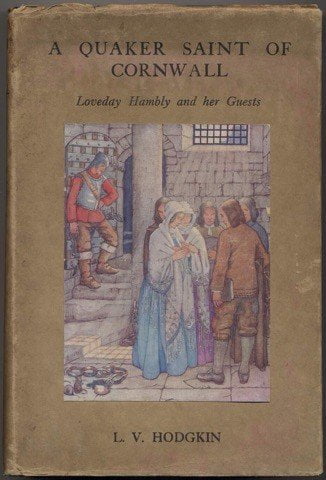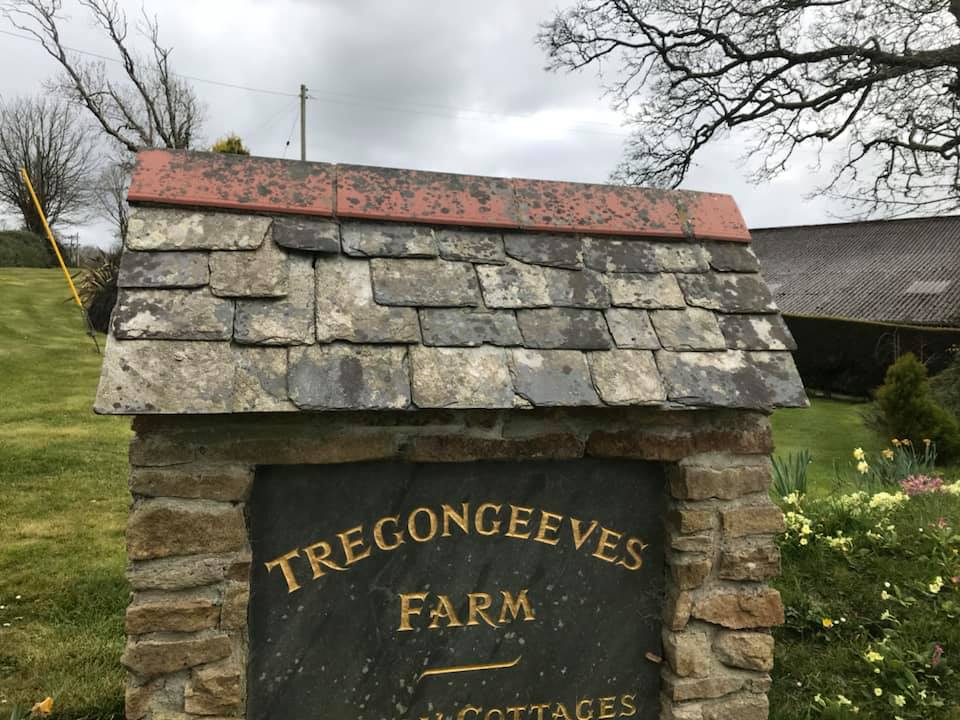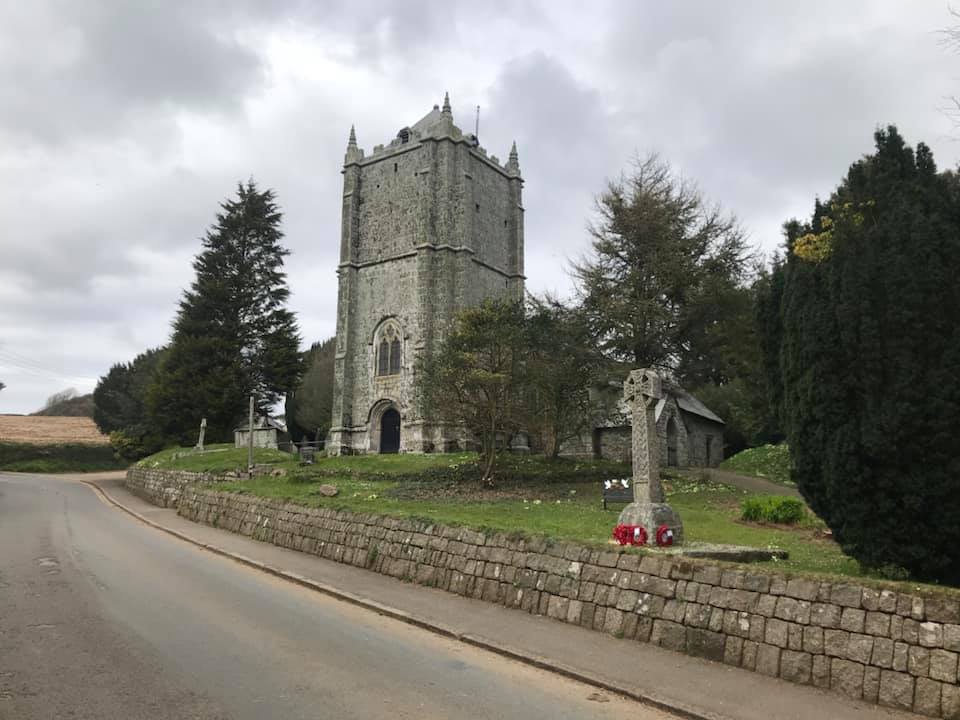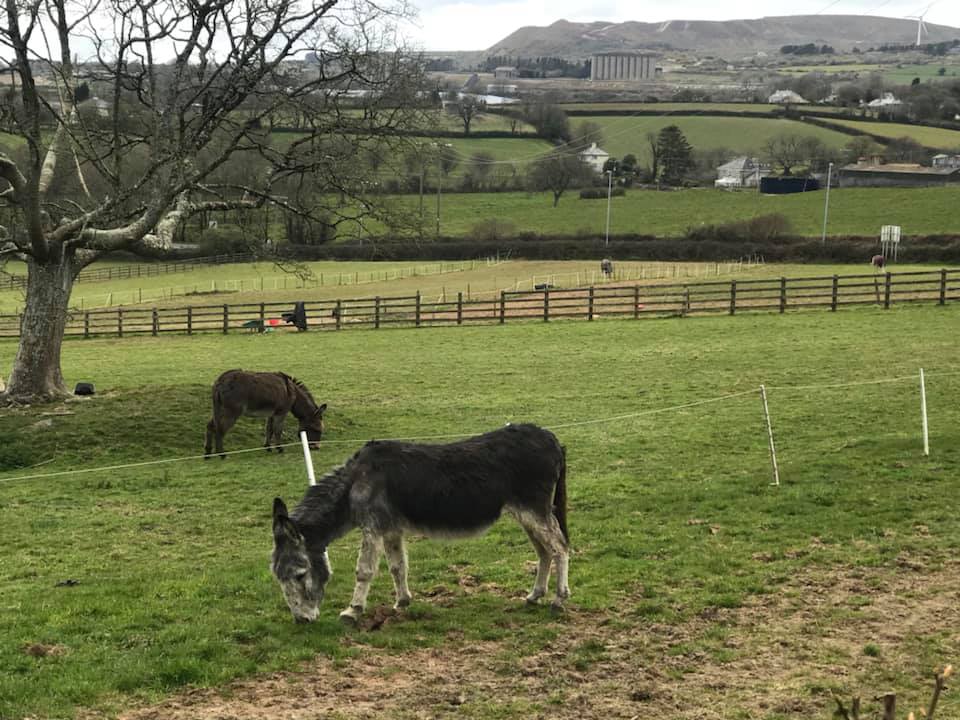Barry West is a Cornish Researcher Based in Cornwall
Loveday Hambly of Tregongeeves between St Mewan and Polgooth appears in a book called ‘A Quaker Saint of Cornwall’ written in 1927.

What is the connection between Tregongeeves and sheep? Is there one ?
Let’s see what you can find !
Very little is known of her but what we do know is an interesting story.
Loveday was born around 1604 at Hengar, a large estate which is between St Breward and St Tudy. She was married in 1639 at St Breward parish church to William Hambly of Tregangeeves farm. In 1651 her husband died and she lived at the farm until her death in 1682. She did not have any children.

In 1656 George Fox was arrested and jailed in Launceston Castle.
Loveday’s nephew, Thomas Lower, who lived with her; went to see Fox in prison and was converted.
Fox’s journal says’And he went home to his Aunt Hambly’s and she
hearing the sound of Truth, she and her sister Grace Billingcame
afterwards to visit us in prison and was convinced also and remains to
this day and they have gone through great sufferings and spoiling of
goods, both he and his aunt for Truth’s sake.’
Loveday was by this time 52 years old and she travelled with her sister the 30 miles to Launceston Castle to visit Fox. They were thoroughly searched on arrival and verbally abused by the gaoler ‘calling them dogs and whores and threatened to break their legs and necks.’ Fox was finally released and after visiting Thomas Lower’s father, he went to visit Loveday Hambly, ‘And from his house we went to Loveday Hambley’s house where we had a fine meeting and many were convinced there also.’

Fox also visited her on his final trip to Cornwall in 1668. ‘And at Tregangeeves at Loveday Hamblye’s we had a general meeting for all the County: where we settled the monthly meetings in the Lord’s power and the order of the Gospel; so that all in it might admonish all: and exhort all: that walk not according to the Gospel. So that the house of God might be kept clean and righteousness might run down and sweep away all unrighteousness.’
Loveday was known for her hospitality and she always had an open door for people; especially Quakers. There were many meetings in her house over the years and she was well known in the area for her Quaker views and she suffered accordingly. In those days people were required by law to pay a ‘tithe’ to the church and because Loveday was not Church of England, she would refuse to give her tithe and for this she suffered much.

In 1657 George Upcott, the son of the local vicar, took Loveday to court for not paying her tithe and had judgement against her to the tune of treble damages. She was forced to answer charges in Westminster and then having made this 220 mile journey she was told the matter had been referred to Cornwall. She had owed £5 but the bailiffs took cattle to the value of £40 to pay the debt. Later that same year Upcott claimed a further 66p and on her refusing to appear before the Exchequer, she was jailed in Bodmin for some weeks.
Loveday was not a young woman and her treatment was harsh.
Quakers were treated very harshly up until 1689 and many died in prison for trifling offences like not taking their hats off in court.
She wrote to Fox.
‘Dear Friend, I have received thy lines, with thy invitation to come to Reddin where I should gladly meet thee if I had ability of body to ride so far: for I find a great weakness in body since my Late trouble which did befall me. But blessed be God in my spirit I find peace, I am ready to give my goods to the Spoiler and my body to prison and my life to the Slayer rather than I shall deny the precious truth that I have received and I should rejoice to see thee had I ableness of body: or a Horse to carry me so far: for I dare keep none that are good: for the greedy hireling priest. Dear Jorge I do desire to hear from thee tho I shall not be able to see thee: so I rest thy faithful friend in Eternal truth. Loveday Hambly.
Loveday was imprisoned again for a few weeks in 1658 and there were other occasions (1660, 1662, 1664…) when she went to prison in Bodmin of Launceston and almost every year she had goods taken away to pay her tithe. Her health suffered from these imprisonments and the general persecution but she remained steadfast.
George Fox
1624 – 1691 was an English dissenter was a founder of the Quakers.
George Fox was born and grew up in Fenny Drayton in Leicestershire in
the turbulent times leading up to the Civil War. At 12, he was
apprenticed to a local tradesman, but he left home in 1643 to seek ‘the
truth’, through listening to preachers and others, and developing his
own ideas. He knew the Bible intimately, and it was central to his life,
but he looked for other sources of inspiration too.
He came to
believe that everyone, men and women alike, could encounter God
themselves, through Jesus, so that priests were not needed. This
experience need not be in a church: these ‘steeple houses’, and the
tithes that supported them, were therefore unnecessary. Those who
believed this became known as ‘Friends of Truth’.